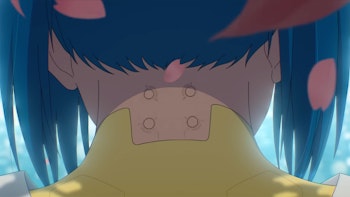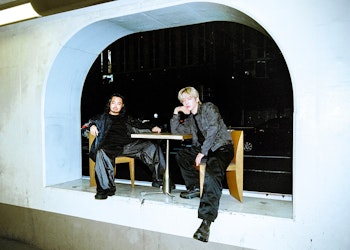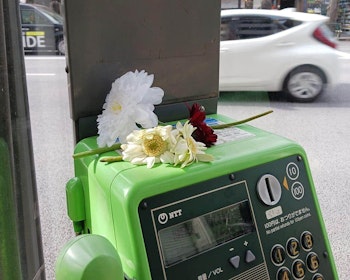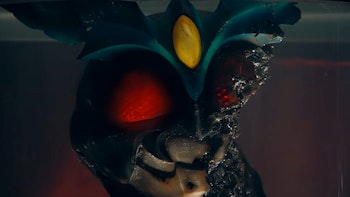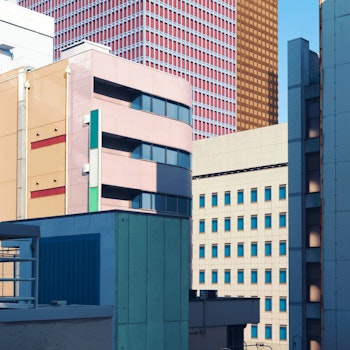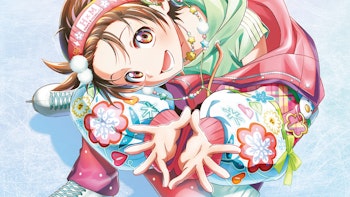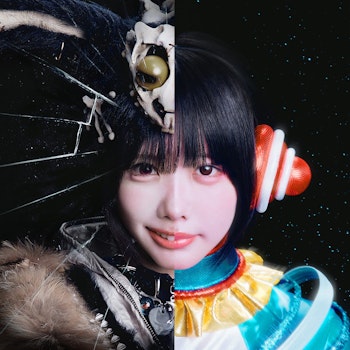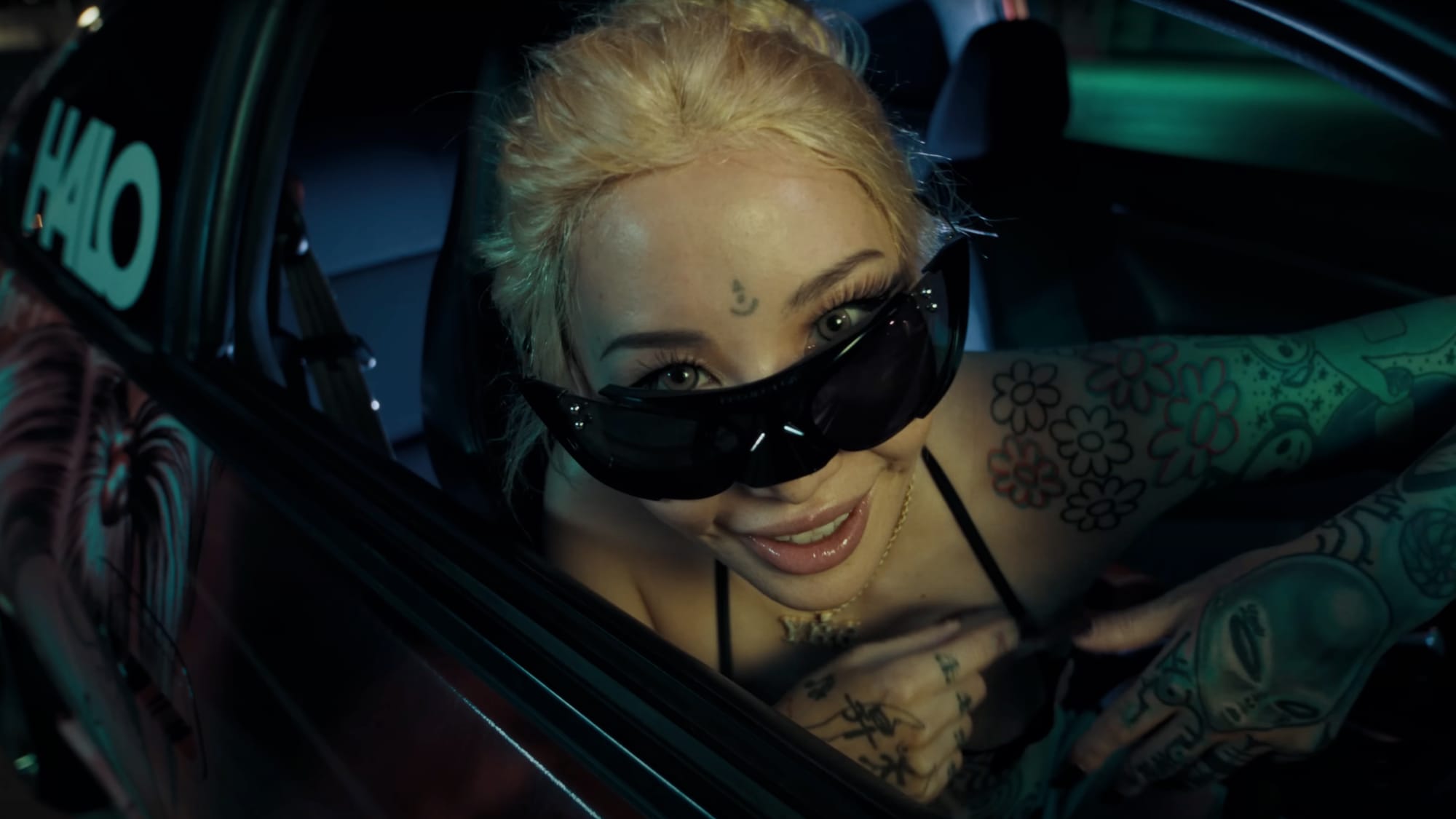
A good diss track gets right to the point, and rapper NENE wastes no time making it clear as to why she’s calling out compatriot Chanmina. “I’m on your mood board / I’m on your mood board bitch,” goes the opening salvos, and she only drills it home more over the course of the next four minutes. She finds that the other MC — one currently closer to the center of the J-pop spotlight — largely ripped off her visual and sonic style, and she’s not going to be quiet about it.
Since appearing on YouTube late last week, “OWARI” has quickly helped to underline 2025’s biggest Japanese rap beef to date. As a pure clash of personalities it’s plenty entertaining, but what elevates this kerfuffle into something even more interesting is the artistic tension at its core. This isn’t just two rappers going at it, but rather a snapshot of a larger discussion between “rap” and “pop” in Japan in the 2020s.
Who's Beefing Exactly?
NENE started rapping in 2016 under the name Sophiee, releasing a mixtape early in that year and catching attention from Tokyo’s underground hip-hop community. She soon linked up with MC Ryugo Ishida after meeting at a party, becoming close and forming the project Yurufuwa Gang alongside a producer named Automatic. Together, the outfit created woozy left-field songs presenting a unique perspective on the genre. They quickly became standouts in a new generation of Japanese rap artists.
NENE herself found space to shine outside of Yurufuwa Gang too. She released solo material alongside her bleary-eyed group work, and popped up on other rapper’s works and more unlikely places (including a Chemical Brothers’ track). Along the way, she became tight with Okinawan rapper Awich, collaborating with her regularly including on her woman-dominated posse cut “Bad Bitch Bigaku Remix,” which helped her grace the stage at the Coachella Music Festival in 2024. She’s continued to release solo material, working closely with producer Koshy as of late.
The target of her ire, Chanmina, emerged at roughly the same time as NENE. The half-Korean half-Japanese MC was born in South Korea, but travelled around during her youth, eventually being based in Japan. Inspired by K-pop powerhouse BIGBANG’s “Haru Haru,” she became extremely interested in rap while still in elementary school. By high school, she was competing in freestyle rap competitions and attracting label attention, eventually working with producer TeddyLoid in 2016 as a guest vocalist. Soon enough, she would stand out on her own.
Chanmina released high-energy and often times brash numbers immediately after, eventually dipping into more intricate cuts like the mini-musical “Doctor” or the genre-skipping (and important for the discussion to come) multilingual cut “I’m A Pop.” She continued gaining recognition from the rap community and mainstream listeners, enjoying bigger breakouts in the early 2020s. She also established enough cred to work with rapper-turned-music-CEO SKY-HI and his BMSG imprint on a new musical reality show called No No Girls, with the intent of creating a hip-hop-inspired girl group out of it.
That program became a late 2024 phenomenon, and the resulting outfit to come out of it — HANA — has debuted to much attention and big numbers. No No Girls and HANA have also helped to push Chanmina up further than ever before, turning her into both an elder statesperson of the scene and shooting older songs back into the spotlight.
It’s also why this rivalry started.
What Caused The Hate?
At the most superficial level, it has a lot to do with how Chanmina’s own sonic and especially visual style has started resembling NENE’s in recent months, with it bleeding over into the imagery associated with HANA. It’s up to each on how deeply one wants to see imitation in all this, and how much one wants to dig into it — an immediate point of comparison is that a scene in HANA’s latest video finding a member performing while surrounded by fire a la what NENE did in the “Bad Bitch Bigaku Remix” clip — though really all you have to do is check the part in the “OWARI” video where she cosplays as Chanmina and stands in front of a bunch of photos of NENE to get the idea.
Yet “OWARI” goes a level deeper. Chanmina isn’t the only one in the verbal crosshairs, as SKY-HI and his BMSG (here dubbed “bitches, market, stealing, group”) label also got hit. The actual rift here is between rap and pop, art and commerce, with lines by NENE wondering if they feel good scamming kids out of money to buy fancy sushi digging into the sales model of groups such as HANA and others in the company.
At time of writing, Chanmina has stayed quiet, but Wednesday night SKY-HI responded with “0623FreeStyle.” It’s a shot back both attacking her central thesis of being a copycat, a chance for SKY-HI to flex his CEO lifestyle and at one point…wondering if she voted in recent elections? Outside of the call for civic duty, it’s a fair hit back and fitting in the grand tradition of hip-hop beef.
Still, there’s a greater tension present.
What’s Really Being Talked About Here?
In 1994, EAST END and YURI released “DA.YO.NE,” a giddy bit of pop-rap that became one of the first Japanese rap songs to become a smash hit, eventually selling over a million copies and landing the project on TV shows. For many, this would be their first interaction with hip-hop.
Who wasn’t happy about that? Japanese rappers, who wanted the culture behind the music to be celebrated and who thought pop-rap typified by “DA.YO.NE” represented a watered down, commercial-eyeing version inauthentic to what the style was all about. “We, the underground and the street — we were the real hip-hop. We weren’t going to kowtow to the masses,” the famed MC ECD told researcher Noriko Manabe in 2008 regarding the boom in pop-rap in the mid ‘90s.
Many of the most prominent Japanese rap beefs in the decades since have at least brushed up against the issue of rap vs pop, even if something more personal is at play. The late 2023 diss exchange between Namedaruma and BAD HOP dipped into this, while an even better example comes from the end of the Aughts, when Seeda and OKI slammed TERIYAKI BOYZ, fixating on their pop leanings (while also punching teriyaki burgers from McDonald’s).
History repeats itself, and while the main beef for NENE might be one of originality, the point she keeps bringing up (and which SKY-HI has had to push against) is the divide between her devotion to rap and Chanmina’s seeming allegiance to pop. The rise of HANA presents the 2020s version of this dilemma, with a group literally created out of a competition TV show representing rap to the mainstream, to the chagrin of those who believe they represent the actual culture behind it.
Complicating this is how prevalent hip-hop elements are in J-pop, ranging from rappers scoring unlikely global hits (Creepy Nuts’ “Bling-Bang-Bang-Born”) to songs heavily using rap cadence at times (YOASOBI’s “Idol”). Rappers have benefitted from this, to varying degrees — Awich can appear on a mainstream show like Music Station, while performers like JP THE WAVY work with pop outfits such as PSYCHIC FEVER to create viral hits. Chanmina herself has touched on this — her “I’m A Pop” touches on the genreless nature of where she exists in the music industry, not rejecting rap but rather aware it can be part of something more.
"’This is J-pop, and this is J-hip-hop,’ she says using her right and left hand respectively before placing an index finger between them, letting it sway. ‘This is me.’" Chanmina told me that in an interview for The Japan Times back in 2019, clearly aware of where she fell.
Ultimately, it’s a clash of vision regarding what rap can mutate into. NENE represents the EDC platform, of doing this for the art and the culture. Chanmina and SKY-HI — both inspired and challenged by the rise of K-pop, which makes rap a central sonic element of most big songs — see the mainstream as a way to bring the style to listeners who might not otherwise get into it.
There’s no clear answer…and there hasn’t been since this question really popped off in the ‘90s. It simply continues to be asked, with two sides offering their side via a hip-hop tradition.
